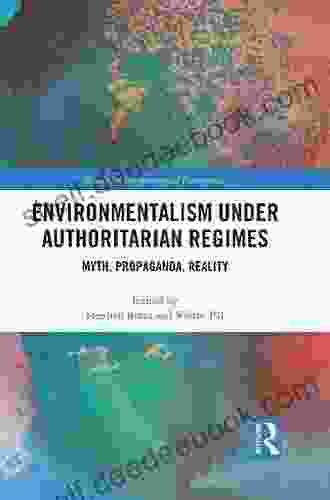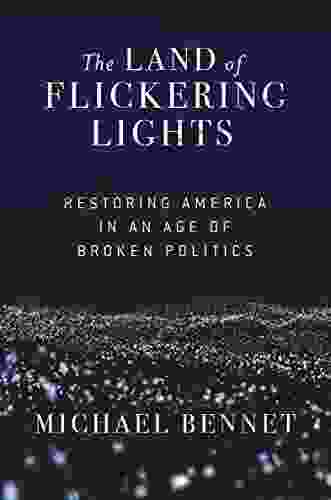Myth, Propaganda, and Reality: Environmental Humanities in the Age of the Anthropocene

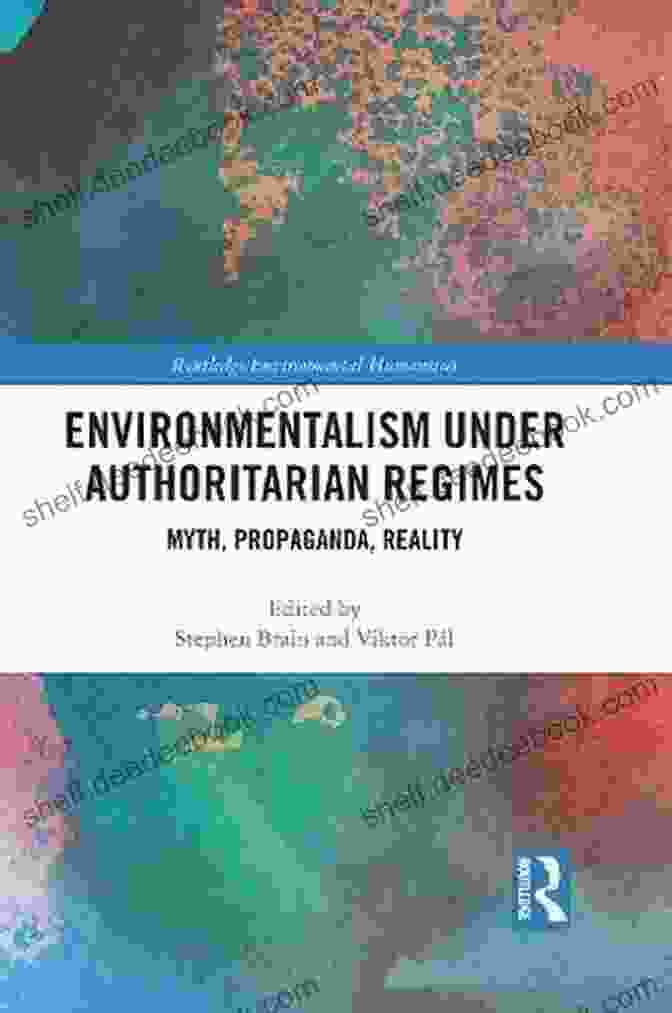
In the era of the Anthropocene, where human activities are the primary drivers of global environmental change, the field of environmental humanities has emerged as a critical interdisciplinary domain. This field seeks to explore the complex intersections of human culture, society, and the environment, recognizing that our understanding of environmental issues is shaped by a myriad of perspectives and narratives. Among these narratives, myth and propaganda often play significant roles, both in perpetuating misconceptions and in inspiring collective action.
5 out of 5
| Language | : | English |
| File size | : | 1975 KB |
| Text-to-Speech | : | Enabled |
| Screen Reader | : | Supported |
| Enhanced typesetting | : | Enabled |
| Word Wise | : | Enabled |
| Print length | : | 250 pages |
Myth and the Environment
Myths, as narratives embedded in cultural traditions, can provide insights into how societies have traditionally perceived and interacted with the environment. These stories often reflect the beliefs, fears, and aspirations of a particular culture, shaping their environmental values and behaviors. However, myths can also be problematic when they perpetuate inaccurate or harmful ideas about the natural world.
For example, the persistent myth of the "pristine wilderness" suggests that untouched ecosystems are inherently superior to those influenced by human activity. This myth ignores the complex interactions between humans and the environment, and can lead to the devaluation of modified landscapes, such as agricultural areas or urban environments.
Propaganda and Environmentalism
Propaganda, on the other hand, is deliberately designed to influence public opinion and shape collective action. In the context of environmentalism, propaganda can be used to raise awareness, inspire support, or promote specific policies. However, propaganda can also be used to manipulate public perception, spread misinformation, or advance vested interests.
One infamous example of environmental propaganda is the "Crying Indian" public service announcement, which depicted a Native American man shedding tears over the pollution of his land. While the image was powerful and emotive, it simplified a complex issue and perpetuated stereotypes about Native American environmentalism.
Reality and Environmental Humanities
In the face of myth and propaganda, environmental humanities strives to engage with the complexities of the real world. This involves examining the historical, cultural, and social factors that shape our understanding of the environment, and critically evaluating the narratives that influence our environmental decisions.
Environmental humanities scholars draw on a wide range of disciplines, including history, literature, anthropology, and sociology, to provide nuanced and interdisciplinary perspectives on environmental issues. By combining rigorous research with critical thinking, they seek to challenge myths, unravel propaganda, and uncover the reality of our relationship with the natural world.
Case Study: Climate Change Narratives
Climate change, one of the most pressing environmental issues of our time, provides a compelling case study of the interplay between myth, propaganda, and reality. The scientific consensus on climate change is overwhelming, yet there are persistent myths and propaganda that attempt to undermine its significance.
For example, the myth that climate change is a "natural phenomenon" ignores the overwhelming evidence of human influence. Similarly, the propaganda campaign funded by fossil fuel companies has sought to sow doubt and delay action on climate change.
In response to these myths and propaganda, environmental humanities scholars have played a vital role in communicating the scientific reality of climate change and highlighting the urgent need for collective action. They have examined the historical, cultural, and political dimensions of climate change, and worked to develop more inclusive and just narratives that inspire hope and mobilize change.
Myth and propaganda can be potent forces in shaping our understanding of environmental issues, but they can also hinder progress toward sustainability and justice. Environmental humanities provides a critical lens through which we can examine these narratives, challenge misconceptions, and uncover the reality of our relationship with the natural world. By engaging with the complexities of myth, propaganda, and reality, environmental humanities empowers us to make informed decisions and work collectively toward a more sustainable and equitable future.
References
* Davis, D. (2010). The Monster at Our Door: The Global Threat of Avian Influenza. New York: The New Press. * Flannery, T. F. (2005). The Weather Makers: The History and Future of Climate Change. New York: Atlantic Monthly Press. * Merchant, C. (1989). Ecological Revolutions: Nature, Gender, and Science in New England. Chapel Hill: University of North Carolina Press. * Oreskes, N., & Conway, E. M. (2010). Merchants of Doubt: How a Handful of Scientists Obscured the Truth on Issues from Tobacco Smoke to Global Warming. New York: Bloomsbury Press. * Slovic, P. (2000). The Perception of Risk. London: Earthscan Publications.
5 out of 5
| Language | : | English |
| File size | : | 1975 KB |
| Text-to-Speech | : | Enabled |
| Screen Reader | : | Supported |
| Enhanced typesetting | : | Enabled |
| Word Wise | : | Enabled |
| Print length | : | 250 pages |
Do you want to contribute by writing guest posts on this blog?
Please contact us and send us a resume of previous articles that you have written.
 Book
Book Novel
Novel Genre
Genre Library
Library Paperback
Paperback Paragraph
Paragraph Glossary
Glossary Bibliography
Bibliography Foreword
Foreword Preface
Preface Synopsis
Synopsis Annotation
Annotation Footnote
Footnote Manuscript
Manuscript Codex
Codex Tome
Tome Library card
Library card Narrative
Narrative Autobiography
Autobiography Reference
Reference Thesaurus
Thesaurus Narrator
Narrator Catalog
Catalog Card Catalog
Card Catalog Borrowing
Borrowing Study
Study Research
Research Scholarly
Scholarly Lending
Lending Reserve
Reserve Academic
Academic Reading Room
Reading Room Special Collections
Special Collections Literacy
Literacy Study Group
Study Group Dissertation
Dissertation Awards
Awards Book Club
Book Club Theory
Theory Textbooks
Textbooks Benjamin Steege
Benjamin Steege Feng Wang
Feng Wang Joseph Cermatori
Joseph Cermatori Dave Chase
Dave Chase Stephenie Gaustad
Stephenie Gaustad E N Brandt
E N Brandt Dave Connis
Dave Connis Gaye Gronlund
Gaye Gronlund Virtuous Nyamesem Cornwall
Virtuous Nyamesem Cornwall Karla Mcgray
Karla Mcgray William Davies
William Davies Anna Maledon
Anna Maledon Bryce Courtenay
Bryce Courtenay Julia Donaldson
Julia Donaldson Anthony Poulton Smith
Anthony Poulton Smith Timothy K Blauvelt
Timothy K Blauvelt Byron L Dorgan
Byron L Dorgan John T Cumbler
John T Cumbler Vesna Neskow
Vesna Neskow Marcelo S Perlin
Marcelo S Perlin
Light bulbAdvertise smarter! Our strategic ad space ensures maximum exposure. Reserve your spot today!

 Clark CampbellKing of the Mountains: The Remarkable Story of Giuseppe Musolino, Italy's...
Clark CampbellKing of the Mountains: The Remarkable Story of Giuseppe Musolino, Italy's... Robert HeinleinFollow ·4.1k
Robert HeinleinFollow ·4.1k Gerald ParkerFollow ·12.7k
Gerald ParkerFollow ·12.7k Joseph ConradFollow ·16k
Joseph ConradFollow ·16k Aleksandr PushkinFollow ·4.8k
Aleksandr PushkinFollow ·4.8k Dallas TurnerFollow ·15.2k
Dallas TurnerFollow ·15.2k Bobby HowardFollow ·5.6k
Bobby HowardFollow ·5.6k James HayesFollow ·16.7k
James HayesFollow ·16.7k Ivan TurgenevFollow ·11.1k
Ivan TurgenevFollow ·11.1k

 Beau Carter
Beau CarterLater Political Writings: A Window into the Evolution of...
Political thought, like...

 Tyrone Powell
Tyrone PowellThe Essential Guide to Family School Partnerships:...
: The Importance of...
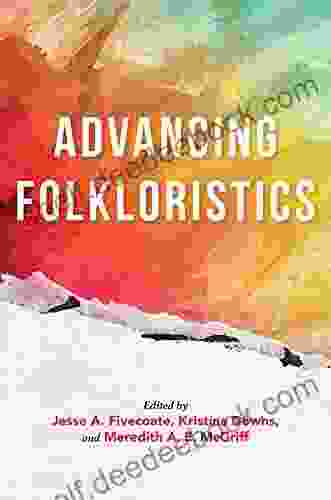
 Christian Barnes
Christian BarnesAdvancing Folkloristics: Conversations with Jesse...
Dr. Jesse Fivecoate is an...

 Jake Carter
Jake CarterHal Leonard DJ Method Connell Barrett: A Comprehensive...
Are you ready...
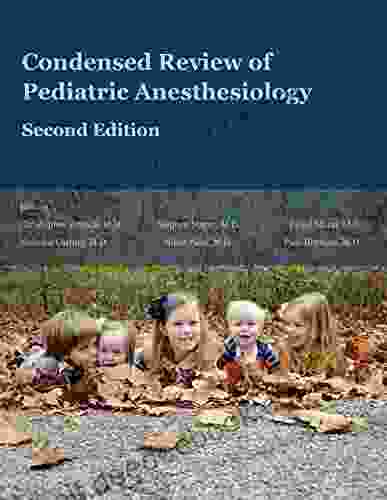
 John Updike
John UpdikeCondensed Review of Pediatric Anesthesiology Second...
Condensed Review of...

 Guillermo Blair
Guillermo BlairExploring the Complexities of Motherhood and Identity: A...
Elena Ferrante's "The Lost...
5 out of 5
| Language | : | English |
| File size | : | 1975 KB |
| Text-to-Speech | : | Enabled |
| Screen Reader | : | Supported |
| Enhanced typesetting | : | Enabled |
| Word Wise | : | Enabled |
| Print length | : | 250 pages |


